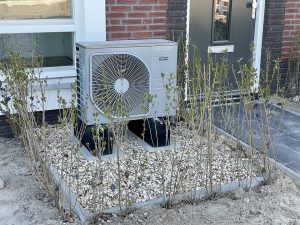Depending on where you live, your climate, and your budget, you may wonder which type of heating and air conditioning unit is the best choice. This article will help you understand the differences between heat pumps and air conditioners and when to use one over the other.
Table of Contents
What is a heat pump, and what does it do?
Whether a homeowner or a business owner, a heat pump can help you save money on your monthly energy bills. By installing one of these systems in your home, you can improve your heating and cooling performance and enjoy year-round comfort control.
The heat pump is a refrigeration system deemed ideal for heating and cooling buildings. It works similarly to an air conditioner but does so much more efficiently.
Heat pumps have been around for decades. They have been primarily used to heat homes, but they can also be used to cool buildings. In addition to heating and cooling, a heat pump can also provide hot water for homes.
The two types of heat pumps that are most commonly used are air-source and ground-source. Air-source heat pumps use refrigerant-filled coils to extract heat from the air outside and then return that heat to the indoor air.
Heat pumps are energy efficient but also need regular maintenance to ensure they operate correctly. Getting a professional repair service to check on your system is a good idea. A professional should be able to tell you what needs to be done to prevent future problems.
Cost and Efficiency
Depending on your area, heat pumps can cost up to five percent more than a standard air conditioner. However, they are more energy efficient than air conditioners. Using a heat pump with an auxiliary electric heater can save you money on your heating costs in winter. A heat pump can also be lower than the cost of using a furnace in milder winters.
When deciding between heat pumps vs air conditioners, you should consider how you will use the system and what you need the design for. An air conditioner is an excellent choice if you only need cooling in the summer. However, heat pumps may be the better choice if you need heating and cooling in your home.
If you have a ground loop, you can use it for more than 50 years. However, you will need to replace the filters on the system regularly. You should also consider the frequency of your annual tune-ups. The frequency of tune-ups will have an effect on the lifespan of your system.
When should you use a heat pump instead of ac unit
During the winter months, you may want to use a heat pump instead of an air conditioner. Using a heat pump will provide you with comfort year-round without the pollutant emissions associated with air conditioners. The heat pump extracts heat from the outside air into your home.
During the summer, a heat pump provides cooling, just as an air conditioner does. But heat pumps aren’t always as effective as air conditioners in the cold months, especially when temperatures are below freezing.
Consider a heat pump if you plan to replace your old air conditioning system. These units are both cooling and heating efficiency and can even help you save money on your utility bills.
When choosing a heat pump, consult with an energy advisor. By switching to a heat pump, you may save 20-40% on your annual utility bill. However, your actual savings will depend on where you live.
Which type of unit is right for you?
Choosing the correct type of heat pump is vital to an efficient heating system. This type of system can save you money and keep your home comfortable. However, you should consult a professional if you are unsure which type is right for your home. Besides, you may be interested in installing a whole-house weatherization system to increase your comfort level.
Heat pumps move heat from the inside of your home to the outside. This ensures that every room is comfortable, and you do not have to worry about odd smells. You can also choose to install ductless mini-split systems throughout your home, increasing your comfort level. These systems are wall-mounted units that are strategically placed throughout your home.
If you are unsure which type of heat pump to install, consult an energy advisor or a contractor. A professional can determine the size of your home and the potential savings you can achieve with a heat pump.
